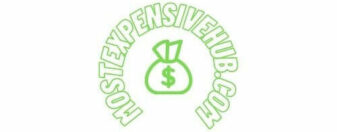Glass bottles, such as those used to store wines, beers, champagnes, and sodas are common household items. But what do we do with them when they are empty? Do these types of glass containers have the potential for recycling?
In this blog post, we’ll explore the process of recycling glass bottles and answer one popular question – can you recycle wine, beer, champagne, and soda glass bottles?
Understanding Glass Recycling
Before we dive into the recycling potential of wine, beer, champagne, and soda glass bottles, let’s take a closer look at the fundamentals of glass recycling. Glass is one of the few materials that can be recycled indefinitely, without compromising its purity or quality.
Recycling glass also provides several benefits for us as well as our environment. It helps save energy by reducing the amount of energy required to produce new glass from raw materials, reduces landfill waste, and preserves valuable natural resources.
Can Glass Bottles be Recycled?
Yes, glass bottles of almost any kind can be recycled. The recycling process of these containers is generally the same regardless of what liquid they once held. However, it’s worth noting that the color of the glass can affect the recycling process.
Clear, green and brown glass have different melting points and chemical compositions – so if you want to recycle them efficiently, they must first be sorted according to their color.
The Recycling Process for Glass Bottles
The recycling process for glass bottles begins with the collection of used containers. The bottles are then shipped to a recycling facility, where they undergo a thorough sorting process – according to their color – and washing to remove any impurities.
Following this stage, the bottles are crushed into small pieces known as cullet. This cullet is melted down and reshaped into new items made from glass such as jars and bottles.
Wine Glass Bottles Recycling
Wine bottles are typically made from either clear or green glass, depending on the type of wine they contain. For example, white wines are usually bottled in clear glass containers while red wines are generally housed in green-tinted ones.
When these bottles come to be recycled, they must be sorted into their respective color categories and cleaned properly to remove any labels and residue that may remain.
Beer Glass Bottles Recycling
Beer bottles are usually made from brown glass, which helps protect the taste and flavor of the beer by blocking out visible light. When recycling these bottles, they must be sorted according to their color and washed properly to remove any labels or residue that may be left over.
Additionally, the process of crushing and melting these bottles down is more complex due to the thick nature of brown glass compared to other colors.
Champagne Glass Bottles Recycling
Champagne bottles are typically made from either clear or green glass, depending on the type of champagne inside. Non-vintage champagnes are usually bottled in clear glass containers, while vintage champagnes typically come in green-tinted ones.
When it comes time to recycle these bottles, they must be sorted according to their respective colors and cleaned properly to remove any labels or residue that may remain. Furthermore, because of their thin walls, they can easily be crushed and melted down for reuse.
Soda Glass Bottles Recycling
Soda bottles are usually made from clear or green glass depending on the color of the soda inside. Clear glass bottles are most commonly used to package light-colored sodas, while dark-colored ones are contained in green glass containers.
When recycling these bottles, they must be appropriately sorted by color and washed to get rid of any labels or other residue that may remain. Additionally, due to their thinner walls, soda glass bottles can be crushed and melted down much more easily than other colors.
Benefits of Glass Bottle Recycling
Recycling glass bottles provide several important benefits for the environment. Not only does it help conserve natural resources, it also reduces landfill waste, and can even save energy in the process.
In fact, recycling just one glass bottle has the potential to power a 100-watt light bulb for up to four hours – an indication of how valuable and conserve-friendly this process can be.
Conclusion
In conclusion, glass containers, such as those used for drinks like wine, beer, champagne, and soda can be recycled. The recycling process itself is quite easy – but it’s essential to sort by color and wash these bottles prior to recycling.
Recycling glass bottlenecks has multiple advantages and is a green choice. By reusing or recycling them, we all play our part in decreasing our environmental footprint.

About Dawson Kutch
Dawson Kutch is a born and raised Alaskan who loves the outdoors and everything it has to offer. Kutch has been an avid hunter and fisher his entire life, and takes great pride in providing for himself and his family. While he enjoys spending time in the great outdoors, Kutch also has a passion for fashion and loves to stay up-to-date on the latest trends. In his free time, Kutch enjoys spending time with his wife and one young daughter. He is always looking to learn more and better himself, both as a writer and as a person.
